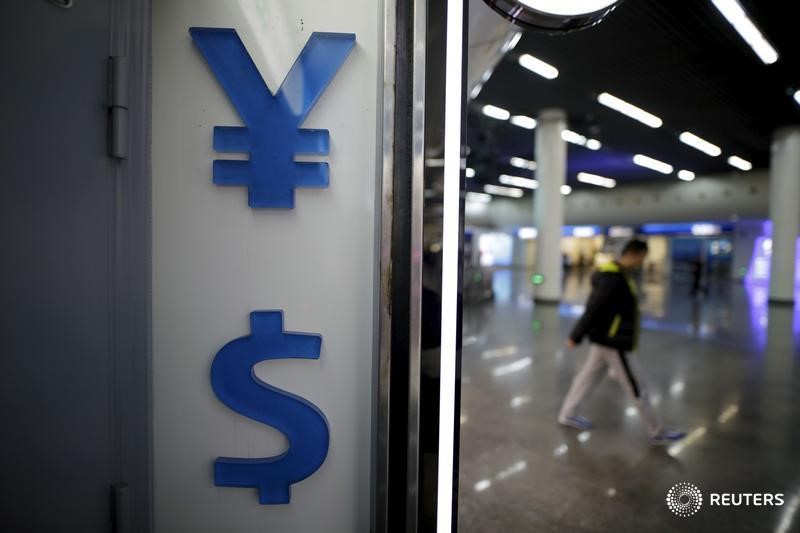
The dollar index and dollar index futures recovered a measure of recent losses, rising 0.1% each in Asian trade and coming on track for their first weekly gain in three. Thursday and Friday’s gains also saw the greenback rebound from near four-month lows, as markets maintained bets that the Federal Reserve will begin cutting interest rates from September.
While this notion had boosted Asian currencies in recent sessions, they pulled back on Friday amid concerns over worsening relations between the U.S. and China. Uncertainty over the U.S. presidential race, amid growing calls for president Joe Biden to drop his reelection bid, also kept risk appetite muted.
The Chinese yuan weakened on Friday, with the USDCNY pair coming close to levels last seen in November 2023.
The yuan was dented by recent reports that the U.S. was considering stricter trade sanctions on China’s technology and chipmaking sectors- a move that could draw retaliatory measures from Beijing.
But even before that, the currency was hit by data showing the Chinese economy grew less than expected in the second quarter.
This put the Third Plenum of the Chinese communist party squarely in focus. While top Chinese officials did promise more measures to support growth, they did not provide any specific details on the measures.
The Japanese yen weakened on Friday, reversing course after rising sharply against the dollar earlier this week.
The USDJPY pair rose past 157 yen, after sinking to around 155 earlier this week. The yen’s sharp appreciation had sparked speculation that the Japanese government had intervened in currency markets, although officials offered scant cues on the matter.
Japanese consumer price index inflation read softer than expected for June, driving up uncertainty over whether the Bank of Japan will have enough headroom to hike interest rates further at a meeting later this month.
Some analysts expect a 10 basis point hike from the BOJ.
Broader Asian currencies weakened as risk appetite remained weak. The South Korean won’s USDKRW pair rose 0.2%, while the Singapore dollar’s USDSGD pair rose 0.1%.
The Australian dollar’s AUDUSD pair fell slightly, while the Indian rupee’s USDINR pair hit a record high above 83.7 rupees.
India’s persistent trade deficit has been a key weight on the rupee, offering the currency little support despite persistent optimism over the Indian economy.
To read the full article, Click Here

